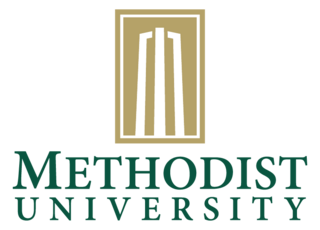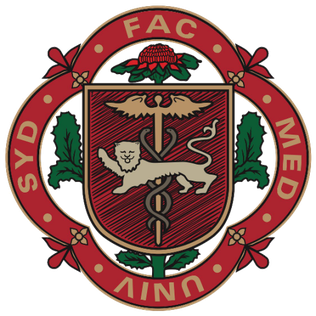Related Research Articles
Maastricht University is a public research university in Maastricht, Netherlands. Founded in 1976, it is the second youngest of the thirteen Dutch universities.
Medical humanities is an interdisciplinary field of medicine which includes the humanities, social science and the arts and their application to medical education and practice.

Medical education is education related to the practice of being a medical practitioner, including the initial training to become a physician and additional training thereafter.
Joseph J. Fins, M.D., D. Hum. Litt., M.A.C.P., F.R.C.P. is an American physician and medical ethicist. He is chief of the Division of Medical Ethics at New York Presbyterian Hospital and Weill Cornell Medical College, where he serves as The E. William Davis Jr., M.D. Professor of Medical Ethics, and Professor of Medicine, Professor of Public Health, and Professor of Medicine in Psychiatry. Fins is also Director of Medical Ethics and an attending physician at New York Presbyterian Hospital-Weill Cornell Medical Center. Fins is also a member of the adjunct faculty of Rockefeller University and has served as Associate for Medicine at The Hastings Center. He is the Solomon Center Distinguished Scholar in Medicine, Bioethics and the Law and a Visiting Professor of Law at Yale Law School. He was appointed by President Bill Clinton to The White House Commission on Complementary and Alternative Medicine Policy and currently serves on The New York State Task Force on Life and the Law by gubernatorial appointment.

Methodist University is a private university that is affiliated with the North Carolina Annual Conference of the United Methodist Church and located in Fayetteville, North Carolina. It is accredited by the Southern Association of Colleges and Schools Commission on Colleges.
Aberdeen University School of Medicine, Medical Sciences & Nutrition contains the Medical School and Dental School at the University of Aberdeen in Scotland. It also provides training and carries out research in medical sciences, nutrition, public health, dentistry, health sciences, physician associate studies at BSc, MSc, and PhD levels. The current school was formed from the merger of the former School of Medicine & Dentistry, School of Medical Sciences, and the Rowett Institute of Nutrition.

The University of Sydney School of Medicine, also known as Sydney Medical School (SMS) is the graduate medical school of the University of Sydney. Established in 1856, it is the first medical school in Australia. In 2018, Sydney Medical School joined the newly formed Faculty of Medicine and Health at the University of Sydney. SMS is ranked 19th in the world and second in Australia in the 2021 QS Subject Rankings for medicine.
Mark Kuczewski is an American philosopher and bioethicist who has been a key contributor to the New Professionalism movement in medicine and medical education. In general, interest in professionalism has been widespread in medicine probably owing to the increasing regulatory and economic pressures on the practice of medicine. Many physicians have sought to identify the focal meaning of what it is to be a doctor in an effort to revitalize the profession. Kuczewski has been among a group that includes Richard and Sylvia Creuss, John Coulehan, and Matthew Wynia who see medical professionalism as including a commitment to social justice. That is, while professionalism entails such things as etiquette, communication skills, and basic medical ethics, professions are also expected to be leaders in educating the public and in advocating for the health of the public. Such leadership requires an understanding of the factors that lead some patient populations to be underserved and a commitment to bringing about social change to ameliorate these problems. The New Professionalism movement in medicine is a revival of communitarian bioethics that focus on the kinds of people and society we wish to be rather than on particular ethical questions of right and wrong. This focus on the relationship between the professional and the community can have important implications for medical education and professional development. While not eschewing case analysis and problem solving, the emphasis on the development of the person has created a renewed interest in narrative methods and reflection. Kuczewski has been an outspoken critic of efforts in medical education to focus on quantitative measures of professionalism education. He has argued that in an effort to make professionalism education “objective,” many medical educators are equating professionalism with trivial but easily measured behaviors. Kuczewski’s interest in professionalism and social justice has led him to pursue ethical issues in the interactions between medicine and recent immigrant populations. He has brought his work in communitarian and casuistic methods to bear on questions such as medical repatriation, insurance for undocumented immigrants, and the eligibility of DREAMers to become practicing physicians. His scholarship and advocacy was the catalyst for the Loyola University Chicago Stritch School of Medicine becoming the first medical school in the United States to explicitly welcome applications from DREAMers with Deferred Action for Childhood Arrivals (DACA) status. Under Kuczewski’s direction, the Neiswanger Institute for Bioethics and Health Policy at Loyola University Chicago has become a leader in educational programming to promote the relationship between medical professionalism and social justice. The Neiswanger Institute has contributed elements to the Stritch curriculum that explore the relationship between the business of medicine and social justice. The Institute also has online master of arts and doctoral programs that incorporating public health and leadership training in order to help health care professionals across the United States to promote service to the underserved. Kuczewski was elected president of the American Society for Bioethics and Humanities and served a two-year term from 2009 to 2011. The ASBH is the major professional association in the United States for individuals engaged in bioethics and medical humanities. During his term, the society aggressively began moving toward a process called Quality Attestation that will attest to the credentials and expected competence of clinical ethics consultants.

Jacob M. Appel is an American polymath, author, bioethicist, physician, lawyer and social critic. He is best known for his short stories, his work as a playwright, and his writing in the fields of reproductive ethics, organ donation, neuroethics, and euthanasia. Appel's novel The Man Who Wouldn't Stand Up won the Dundee International Book Prize in 2012. He is the director of Ethics Education in Psychiatry and a professor of psychiatry and medical education at the Mount Sinai School of Medicine, and he practices emergency psychiatry at the adjoining Mount Sinai Health System. Appel is the subject of the 2019 documentary film Jacob by director Jon Stahl.
H. Martyn Evans is a Welsh academic and Professor of Philosophy of Music and Member of the School of Medicine and Health at the University of Durham. From 2002 to 2008, he was Principal of John Snow College, Durham. From 2008 to 2019, he was Principal of Trevelyan College, Durham.

Medicine Unboxed is a project arising from a view that good medicine demands more than scientific and technical expertise, and that it necessitates ethical judgment, an understanding of human experience, empathy, professionalism and wisdom.
The MacLean Center for Clinical Medical Ethics, founded in 1981, is a non-profit clinical medical ethics research institute based in the United States. Founded by its director, Mark Siegler, the MacLean Center for Clinical Medical Ethics aims to improve patient care and outcomes by promoting research in clinical medical ethics by educating physicians, nurses, and other health care professionals and by helping University of Chicago Medicine patients, families, and health care providers identify and resolve ethical dilemmas. The center has trained over 410 fellows, including many physicians, attorneys, PhDs and bioethicists.

Dame Clare Mary Louise Francis Gerada, Lady Wessely, is a London-based general practitioner who is a former President of the Royal College of General Practitioners (RCGP) and a former chairperson of the RCGP Council (2010–2013). She has professional interests in mental health, substance misuse, and gambling problems.

Rita Charon, is a physician, literary scholar and the founder and executive director of the Program in Narrative Medicine at Columbia University. She currently practices as a general internist at the Associates in Internal Medicine at Columbia Presbyterian Hospital, and is a professor of clinical medicine at the College of Physicians and Surgeons of Columbia University.
The various academic faculties, departments, and institutes of the University of Oxford are organised into four divisions, each with its own Head and elected board. They are the Humanities Division; the Social Sciences Division; the Mathematical, Physical and Life Sciences Division; and the Medical Sciences Division.

Françoise Elvina BaylisFISC is a Canadian bioethicist whose work is at the intersection of applied ethics, health policy, and practice. The focus of her research is on issues of women's health and assisted reproductive technologies, but her research and publication record also extend to such topics as research involving humans, gene editing, novel genetic technologies, public health, the role of bioethics consultants, and neuroethics. Baylis' interest in the impact of bioethics on health and public policy as well as her commitment to citizen engagement]and participatory democracy sees her engage with print, radio, television, and other online publications.
Andrew John Timothy George, is Deputy Vice-Chancellor at Brunel University London and Professor of Immunology.

Christine I. Mitchell is an American filmmaker and bioethicist and until her retirement in September 2022, the executive director of the Center for Bioethics at Harvard Medical School (HMS).
Kamila HawthorneMBE FAcadMEdFLSW is a Welsh medical academic and a general practitioner. She has been a clinical professor of Medical Education, and Associate Dean for Medicine.
References
- ↑ "Genetic Testing in Children". Inside the Ethics Committee. 24 August 2013. BBC Radio 4. Retrieved 18 January 2014.
- ↑ "Deborah Bowman". Academic.edu. Retrieved 18 January 2014.
- ↑ "Kumar and Clark "Clinical Medicine" (8th Edition)". elsevierhealth.co.uk. Archived from the original on 19 February 2014. Retrieved 1 August 2017.
- ↑ Principles and Practice of Travel Medicine (2nd Ed) [with Richard Dawood]
- ↑ "Arts review: 13". Times Higher Education (THE). 3 November 2011. Retrieved 1 August 2017.
- ↑ "the MDDUS magazine "Summons". mddus.com. Archived from the original on 2 February 2014. Retrieved 1 August 2017.
- ↑ "The 'Elephant' in the hotel room". Times Higher Education (THE). 8 October 2009. Retrieved 1 August 2017.
- ↑ "Genetic Testing in Children". Inside the Ethics Committee. BBC. Retrieved 18 January 2014.
- ↑ "The Cheltenham Science Festival". cheltenhamfestivals.com. Archived from the original on 3 March 2016. Retrieved 1 August 2017.
- ↑ "No. 61803". The London Gazette (Supplement). 31 December 2016. p. N16.
- ↑ Insight MDDUS. Quarter four 2017; p. 21